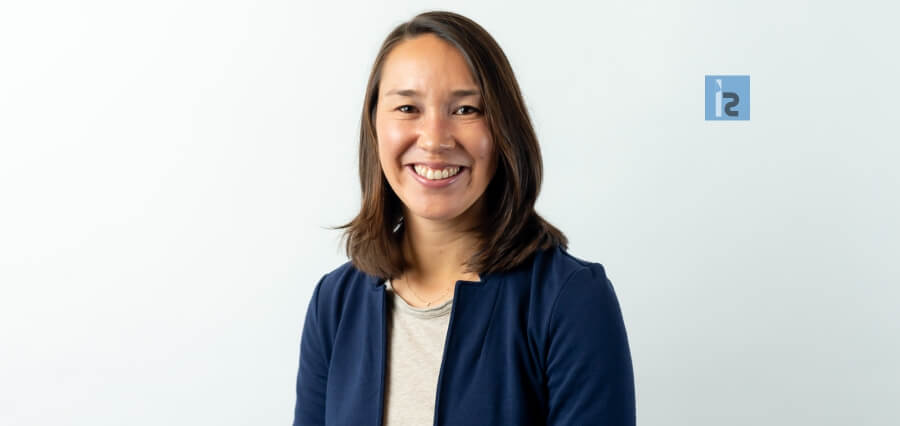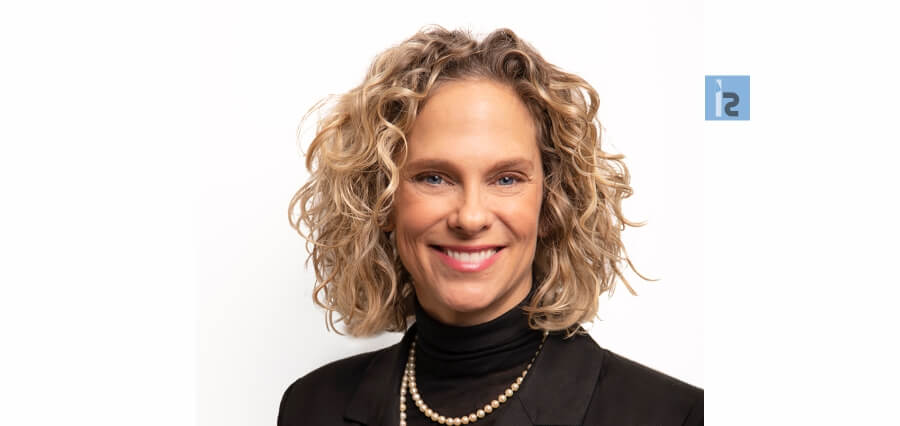Difference makers can drive meaningful changes that touch people’s lives at different levels. Leveraging her MIT background and passion for making a difference in the lives of others, Sasha King has led a remarkable patient-centric approach to scientific innovation and commercial growth since she joined CareDx as the Chief Marketing Officer.
Sasha’s passion for impacting patients’ lives has helped CareDx deliver a new standard of care for patients who’ve traded end-stage organ failure for a second chance at life with an organ transplant. She has also helped simplify patients’ day-to-day lives by rolling out at-home blood testing for immunosuppressed transplant recipients during a global pandemic.
Together with her colleagues, Sasha launched new diagnostic products that enhance care for patients living with a donated heart, kidney, liver, or lung and patient-centric digital applications that help improve complex medication adherence regimens.
Leading with Innovation
Sasha states CareDx is fully and exclusively dedicated to transplant patient care, focused on solid organ transplants with an acute medical need. She notes, “We help people who are experiencing end-stage organ disease where a vital organ – their heart, their kidneys, their liver, or their lung(s) – are failing, and they need to receive a new one to survive. It’s a patient population where transplantation makes miracles happen, taking recipients from their very worst medical state to a new lease on life.”
When CareDx was founded 20 years ago, it focused on new emerging technology and identifying the best market fit based on the technology itself. The company looked at every place where its proprietary gene expression diagnostics could be impactful. Early on, the company decided to focus on heart transplants, where there was a significant unmet medical need, and available products were invasive and lagging indicators of heart rejection. CareDx was the first to introduce a non-invasive blood test to assess transplanted organ health.
Sasha mentions that eight years ago, around the time the company went public, the company’s former CEO, Peter Maag, put a firm stake in the ground and decided to focus exclusively on transplant patients. It wasn’t enough to offer a test to identify rejection. He wanted to expand its mission to help transplant recipients at every stage of their journey, pre-and post-transplant – from organ matching to waitlist support to post-transplant surveillance to medication adherence.
The company name was changed to CareDx, revitalizing the course for the company. After launching AlloMap Heart, the world’s first non-invasive test to monitor immune quiescence, it realized it needed to evaluate multiple dimensions of organ health. Sasha shares, “We acquired the initial intellectual property behind AlloSure, a tool that can measure donor DNA levels in a recipient’s body – a key measurement to inform post-transplant care. Since then, CareDx has spent years in research and development to clinically validate AlloSure for heart, kidney, and lung transplantation.”
CareDx is now plowing new frontiers in multimodality diagnostics, combining gene expression tests with donor-derived cell-free DNA (dd-cfDNA) to give transplant physicians the earliest and most comprehensive picture of post-transplant organ health, enabling timelier, tailored medical interventions if problems arise.
Denting the Universe
As the company grew and new products were after prodcuts introduced, Sasha worked with her team to build out sales, marketing, and customer care teams, and supporting reimbursement to ensure AlloSure was readily available for all transplant patients. In contrast, previous solutions for transplant patients were either lagging indicators of organ damage or invasive biopsies. Sasha mentions, “We were able to introduce a completely new, advanced molecular tool that has provided early detection for patients and clinicians. If it wasn’t for our solutions, you hear about patients who would be on a very different trajectory and may have lost their organs. It’s incredibly compelling when you think about the impact we’re having on transplantation.”
Embracing Technology
Sasha realized early on that CareDx’s success depended on a very high touch personalized service to support the logistics of blood draws and test-report generation. She understood that logistics should never be a barrier to physicians’ ability to deploy next-generation, non-invasive, post-transplant tools. Thus, CareDx has patient care managers who call patients and schedule their blood draws, simplifying the process for transplant recipients, their patient care team, and providers.
“RemoTrac”, a mobile phlebotomy service, allows patients to draw their blood from their homes. It became an essential service when the COVID-19 pandemic hit. Sasha notes, “Transplant patients are immunosuppressed and at higher risk of severe disease, so going into healthcare settings during a global pandemic is incredibly dangerous for them. They need to be able to do their blood draws from home, Luckily, we already had that service in place, but we expanded it to support all patients during the height of the pandemic. The service has helped keep people safe, so only those who need to be in the physician’s office with a serious issue go in.”
Since CareDx’s inception, it has helped more than 80,000 transplant patients with its testing services. Twice a month, hosts patient webinars and thousands subscribe to their newsletter to stay on top of the science and the latest research. As a transplant company, CareDx plays an exciting role with its digital platform to bring transplant patients together, so they can talk to each other, learn from each other, and support each other.
The Next Big Step
CareDx is moving into monitoring the health of cancer patients after receiving allogeneic cellular therapies and stem-cell transplantation. Sasha asserts, “When you transplant someone else’s stem cells or bioengineer somebody’s cells, that is a form of blood-based or cell-based transplantation. You now have a cell with DNA that is not your own. This is an area where we specialize, so we’re excited to apply our organ transplant experience and move into these new areas to provide our expertise to support our patients and expand that definition of transplant.”
Bequeathing Brilliance
Sasha advises aspiring entrepreneurs venturing into the marketing sector to take feedback effectively and be comfortable with pivoting and changes that can be a significant enabler of success. Sasha says, “I’ve seen people be successful in marketing who come from a wide variety of backgrounds. What they have in common is a growth mindset. That’s something I always look for on my teams. In marketing, you need to be comfortable and thrive in change.”
“I also think it’s incredibly important to follow your passions. At CareDx, we love taking care of transplant patients. If you have a passion for your mission and a vision for change, you’re going to be well-situated to shift into the kinds of strategies that will make you successful,” Sasha concludes.













